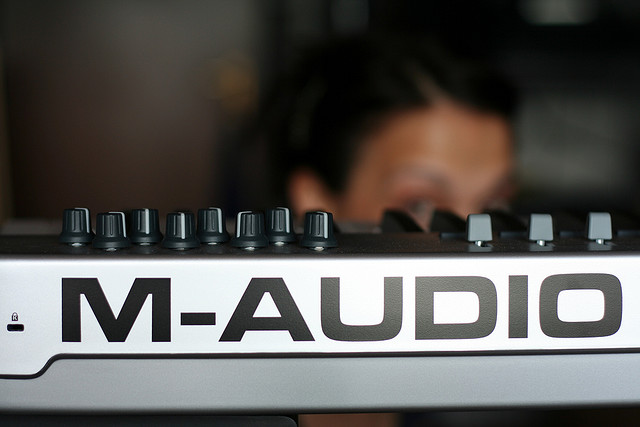
Avid today announced sweeping changes in a changing market. Having gradually accumulated more businesses, the company now is selling many of them off, keeping its flagship video tool and Pro Tools audio products. Gone are the consumer/entry-level divisions – consumer-level Avid and Pinnacle on the video side and M-Audio on the audio side. Instead, Avid says it will be “more focused and agile” and will focus on the pro side of their business.
The key here: most of Avid’s revenue is pro revenue. Combined, the divisions Avid is dumping pulled in just US$91 million of the total US$677 million Avid earned in 2011.
Pinnacle continues its strange ride. The video company that briefly owned Steinberg before selling it to Yamaha is now arriving, with the other consumer desktop and iPad video products, at Corel. (Yes, Corel still makes WordPerfect.)
The bigger news for CDM readers is that the sale of M-Audio will make a consumer giant, as far as selling hardware for computer music makers, particularly at the entry level.
inMusic, parent of Akai Professional, Alesis, and Numark, is buying M-Audio, including “M-Audio brand keyboards, controllers, interfaces, speakers and digital DJ equipment and other product lines.”
It’s likely to confuse some customers, but some of M-Audio’s best-known products will remain with Avid: [formerly] M-Audio Fast Track, along with Avid Mbox, as essential entry-level audio interfaces for Pro Tools, will still be Avid products. That means Avid isn’t entirely turning its back on entry-level customers and bedroom producers; on the contrary, it seems to suggest that these are some of the biggest earners (and, critically, a way of attracting those users to Pro Tools).
But Akai/Alesis/Numark have a lot of products that overlap with the M-Audio line – Numark has competing DJ products, and Akai and Alesis makes competing keyboards and drum pads. We’ll have to see how inMusic harmonizes those product lines.
The numbers, though, are inarguable. The pro market – particularly with Avid’s success in live sound, alongside recording and video production – is still a big revenue source. Now, we get to see if Avid’s new focus translates into a more effective maker.
Of course, since we’re users, not investors, we’ll primarily be watching to see what this means for the tools we use.
Just one request: inMusic, can you make some Midiman t-shirts for those of us with nostalgia? No?
Avid Divests Consumer Businesses and Streamlines Operations [Press Release]
Clarification: Poorly-chosen words implied that the entity that is now Avid began as Digidesign. Digidesign was an Avid acquisition. Note that only last year, however, Avid rebranded its pro line under the name Avid rather than Digidesign, and also dropped or de-emphasized the M-Audio name from many of the now-divested consumer products.
Who’s going, who’s staying: Notably, the Sibelius notation products will evidently remain with Avid. That leaves a significant portion of the business: Media Composer for video, Venue for live sound, Sibelius for notation, Pro Tools, and Pro Tools-related audio interfaces will all continue to be Avid products.
But it’s not just M-Audio hardware that’s leaving. In a separate press release, inMusic announces that it “is the new parent company for a family of premier brands that includes AIR Software Group, Akai Professional, Alesis, Alto Professional, ION Audio, M-Audio, MixMeister, Numark, and Sonivox.” That means that in addition to the M-Audio brand, which apparently will remain, inMusic is acquiring Avid’s software maker. inMusic is a new name, but Jack O’Donnell remains owner and CEO of the entity.
This also means that while Avid is slicing 20% of its workforce, some of those staff will go on to inMusic, who note that AIR “has a number of groundbreaking new products in development, many of which will be showcased and released in the latter half of 2012.”